-
Understanding the Categories of Hazardous Waste Generators
Hazardous waste is a byproduct of many industrial processes. If your business creates hazardous waste during its daily operations, you will need to create a waste management plan that complies with federal and state regulations. A company that offers dumpster rental near Atlanta can help you manage your hazardous waste and set up regulated waste disposal services for all of your byproducts. To assist you as you create your waste management plan, here is a closer look at the three categories of hazardous waste generators.
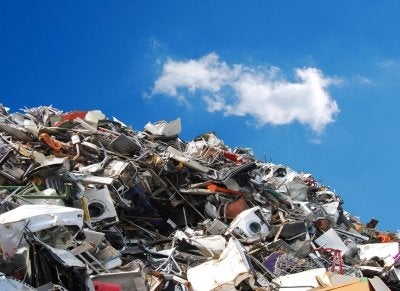
Conditional Exempt Small Quantity Generators
Conditional Exempt Small Quantity Generators are typically referred to as CESQGs. In order to fall into the CESQG category, a person or business must create no more than 100 kilograms of hazardous waste each month. If you or your business has recently been classified as a CESQG, you will need to make sure that you keep track of all of your daily waste products. It is also necessary to send your hazardous waste to a facility or waste management station that specializes in processing hazardous goods.
Small Quantity Generators
Small Quantity Generators create more than 100 kilograms of hazardous waste each month, but their hazardous waste totals must not reach more than 1,000 kilograms in a month’s time. For the first 180 days of their operations, Small Quantity Generators are allowed to operate without receiving federal hazardous waste permits. Each Small Quantity Generator must process their waste in an approved container or tank, and there also needs to be an emergency response coordinator on site to deal with unexpected leaks or spills.
Large Quantity Generators
Large Quantity Generators are typically major industrial facilities that create upwards of 1,000 kilograms or more of hazardous waste every month. Each Large Quantity Generator must have its own, on-site containers or approved waste disposal bins. According to EPA regulations, Large Quantity Generators must also meet all standards that are set out in the hazardous waste manifest. A Large Quantity Generator must also provide written reports to the EPA twice during each calendar year.
-
Waste Reduction Tips for Office Buildings
Over the course of an average workweek, your office building may generate considerable amounts of solid waste. Some examples of common office building waste products include litter, paper products, and electronic goods. By encouraging your employees to recycle and scheduling weekly trash pickup services, you can cut back on the waste that your office building sends to the landfill. A company that offers waste management services can help you create a targeted plan that will help you cut back on your office waste near Atlanta. Read on for an overview of some helpful waste reduction tips to implement in your office building.
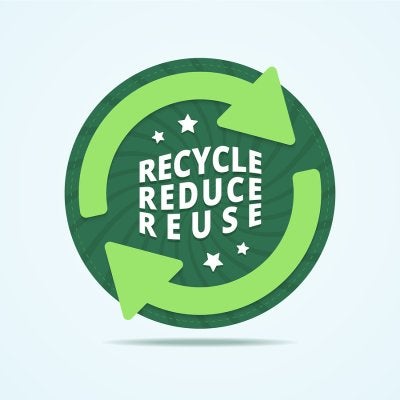
Encourage Electronic Communication
In today’s digital era, many forms of business communication can be completed online or over the phone. In order to reduce waste in your office building, you may want to encourage your workers to rely on electronic forms of communication, rather than printed memos and faxes. By cutting back on the number of paper letters and memos that you print out every day, you can achieve terrific waste reduction over the course of a business year.
Maintain Your Office Supplies
Office supplies, such as staplers, pens, and glue sticks, will all take up space when they are tossed in the trash and sent to the landfill. To cut back on the waste that is created by your office, you may want to encourage your workers to take care of their office supplies. Capping pens, avoiding stapler jams, and closing up glue containers will help these supplies last longer before they have to be tossed.
Create a Recycling Program
Recycling is one of the best ways to reduce office waste and help the environment. When you create a new recycling program for your business, you will need to make sure that all of your workers are on board with the plan. Along with placing recycling bins throughout your office space, you may want to hold a meeting where you discuss the importance of recycling. Creating recycling incentives and rewards can also help to encourage your workers to recycle.
-
What Is Dual Stream Recycling?
When you are setting up a recycling program , you may encounter the term dual stream recycling. Dual stream and single stream recycling are two different methods for sorting recycled waste before it is sent to the processing facility. If you want ensure that your recycling methods are as sustainable as possible, you may want to consider setting up dual stream recycling services. A company that offers recycling bins in Atlanta can provide you with the containers that you need to sort your recyclables correctly.
One of the key characteristics of dual stream recycling is that this type of recycling program requires consumers to sort their paper, glass, and plastic recycling before it is picked up for processing. By sorting your recyclables by type, you can help to cut down on recycling waste and increase the amount of recoverable material that can be sourced out of your recyclables. While single stream recycling may seem more convenient, dual stream methods can be more sustainable in the long run.
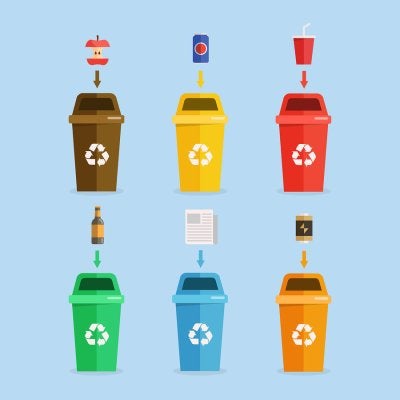
-
Identifying Sources of Hazardous Waste in Your Small Business
Hazardous waste may be an unexpected byproduct of your business operations. Whether you are setting up a new small business, or you have been operating for years, it is important that you identify any hazardous waste that you may generate during your workdays. A company that specializes in waste near Atlanta will be able to help you create a waste disposal plan that allows you to handle these materials correctly.
To ensure that your waste management methods are EPA-compliant, you will need to assess and identify any hazardous waste that is created by your business. Hazardous waste is defined as any type of solid waste that is ignitable, corrosive, reactive, or otherwise toxic. For your reference, the EPA has created a list of more than 400 types of hazardous waste as defined by the Resource Conservation and Recovery Act. By consulting with this list, you will be able to easily determine whether your business creates hazardous waste. After your hazardous waste has been identified, you will be able to create a hazardous waste management plan.
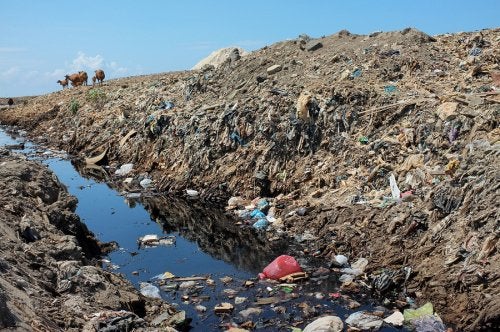
-
Spotlight on Types of Landfills
When you toss your garbage in the nearest dumpster, you may not give a second thought as to where it heads after it has been collected by a trash pickup service. In fact, there are several different kinds of landfills that serve various waste management functions. After you set up dumpster rental near Atlanta, you may want to ask your waste management professionals about the different types of landfills that are used to process your waste. To help you understand common waste management practices, here is an overview of three of the most common types of landfills.
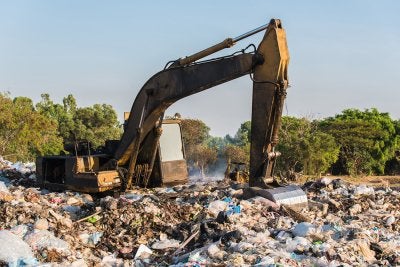
Municipal Solid Waste Landfills
Household trash and rubbish is typically sent to a Municipal Solid Waste Landfill, or MSWL. MSWLs are located across the United States, and each city, town, or county typically has its own landfill site. These landfills must be located at a safe distance away from neighborhoods and commercial districts, and they must also be equipped with liners and leech collection systems that prevent the surrounding groundwater from becoming contaminated.
Industrial Waste Landfills
An industrial waste landfill is specifically designated for the disposal of solid industrial waste products. Industrial waste landfills are engineered to safely house a variety of different types of industrial waste products, including plastic, glass, concrete, and construction debris. Along with collecting industrial waste, these landfills also serve as disposal sites for construction debris. It is important to note that hazardous waste products, such as asbestos, cannot be processed at a standard industrial waste landfill facility.
Hazardous Waste Landfills
A third type of landfill is known as a hazardous waste landfill. Since these landfills are designed to house many different types of hazardous waste, they are subject to strict regulations from the EPA. Every hazardous waste landfill must contain a double liner, runoff control system, and leak detection technology. Hazardous waste landfills are routinely inspected to make sure that they are not leaking harmful materials into the surrounding environment. If your business generates hazardous waste, you will need to make sure that your waste materials are being delivered to one of these landfills.
-
The Benefits of Lifecycle Thinking
Lifecycle thinking is a term that is used to describe waste management practices that are designed to encourage individuals and businesses to set up sustainable recycling program. In this video from waste management, you will learn about how lifecycle thinking can benefit your recycling serving Atlanta . By taking a look at the larger picture, you will have a better idea of the impact of your recycling program.
From metal recycling to plastic recycling and more, there are many materials that can now be easily recycled and transformed into new goods. If you have been interested in learning more about how to recycle effectively, you may want to educate yourself on lifecycle thinking and how this philosophy can impact your recycling goals.
-
Answering FAQs About Industrial Solid Waste
If you own or manage an industrial plant or factory, your waste management will typically be monitored by the EPA or another federal organization. To make sure that your waste management procedures comply with federal regulations, you should work with a company that specializes in managing industrial waste near Atlanta . Your waste disposal company can help you create onsite solutions and collection plans for all of your solid waste. Let’s answer some of the most commonly asked questions that business owners have about their industrial solid waste.
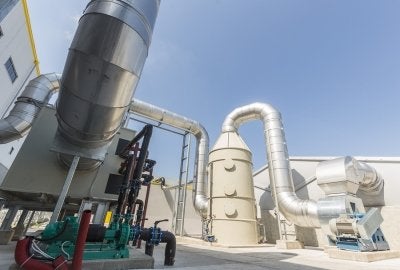
What is the definition of industrial solid waste?
In order to properly manage your industrial solid waste, it is helpful to understand how this category of waste is defined. Typically, industrial solid waste is categorized as any waste product that is in a solid, partially solid, or enclosed gaseous state after it has been generated. In order for waste to become labeled as industrial solid waste, it must be produced during an industrial or manufacturing process.
Are there methods for reducing industrial solid waste?
Many industrial businesses are interested in reducing the amount of solid waste that they create during their daily operations. Solid waste reduction can help to make a company’s manufacturing process more efficient, and waste reduction is also environmentally friendly. To reduce solid waste production, it may be possible to install new machinery that is designed to be more efficient, using fewer resources. Proper facility maintenance can also go a long way towards reducing solid waste in an industrial setting.
How can solid industrial waste be managed?
An experienced industrial waste management company can provide you with disposal and pickup services that will help to streamline your solid industrial waste management. Rather than relying on onsite services for proper containment and disposal, you can hire your waste management professionals to pick up, sort, and dispose of your solid waste using the latest waste management technology. Outsourcing your solid industrial waste management will help you ensure that your waste management plan complies with federal regulations.
-
The Effects of Plastic Bags on Marine Life
Trash bags and other forms of plastic waste have a significant impact on the safety and wellbeing of ocean creatures. In this video from National Geographic, you will take a dramatic look at what is like for a marine creature to become trapped in a plastic bag. With proper waste management in Atlanta, you can do your part to protect our oceans.
If you would like to set up plastic recycling services for your home or business, be sure to get in touch with a qualified recycling center that services your local area. Your waste management professionals can help you create an ocean-conscious recycling program that helps to preserve our marine life for many generations to come.
-
The Basics of Recycling
Are you thinking about beginning a company-wide program for recycling in Atlanta? If so, then you are on your way toward reducing waste and promoting a greener workplace . During this type of transition, it’s common for people to wonder about how materials are recycled. Watch this video to learn the basics of recycling.
The recycling process involves collecting waste products and then breaking them down into materials that can be used to create new products. Each type of recyclable product is broken down in its own way, and most recycling plants use either a single stream or dual stream system. Dual stream involves the division of paper and anything else in the recycling bin, while single stream requires sorting a mixture of recyclable products.
-
Reducing Paper Use in the Office
Instituting a recycling program for your office is an excellent way to make your business more environmentally friendly. However, taking steps to reduce your need for waste management and recycling in Atlanta is another approach to promoting a greener office. Watch this video for tips on reducing the amount of paper that your office uses.
The average office worker goes through about 1.5 pounds of paper each day, which is an amount that can add up quickly. In addition to using recycled paper and recycling bins in your office, you can make your business greener by reducing your paper use and going digital as much as possible. Also, instead of printing off articles, read them on your computer or mobile device. When you do need to print something, print only the pages that you absolutely need to reduce your paper use.
RECENT POSTS
categories
- Uncategorized
- Waste Management Atlanta
- Waste Disposal and Recycling
- Hazardous Waste Disposal
- Chemical waste removal
- solid waste removal
- R3 Program
- Sustainable Organizations
- Sustainable Waste Removal
- Commercial Waste Removal
- Materials Management Program
- Dumpster Rental
- Roll Off Dumpsters
- Construction Site Waste Removal
- Sustainability
- Recycling in Atlanta
- Industrial Recycling
- Industrial Waste Removal Services
- Southern Waste & Recycling
- Waste Removal Atlanta
- Waste Specialists
- Atlanta
- Infographic
- Front Load Dumpsters
- Rear Load Dumpsters
- Reusable Electronics
- Dump Truck Atlanta
- Recyclable Electronics
- Trash Compactors
- Recycling
- Recycling Program
- Office Recycling
- Metal Recycle
- Electronic Waste
